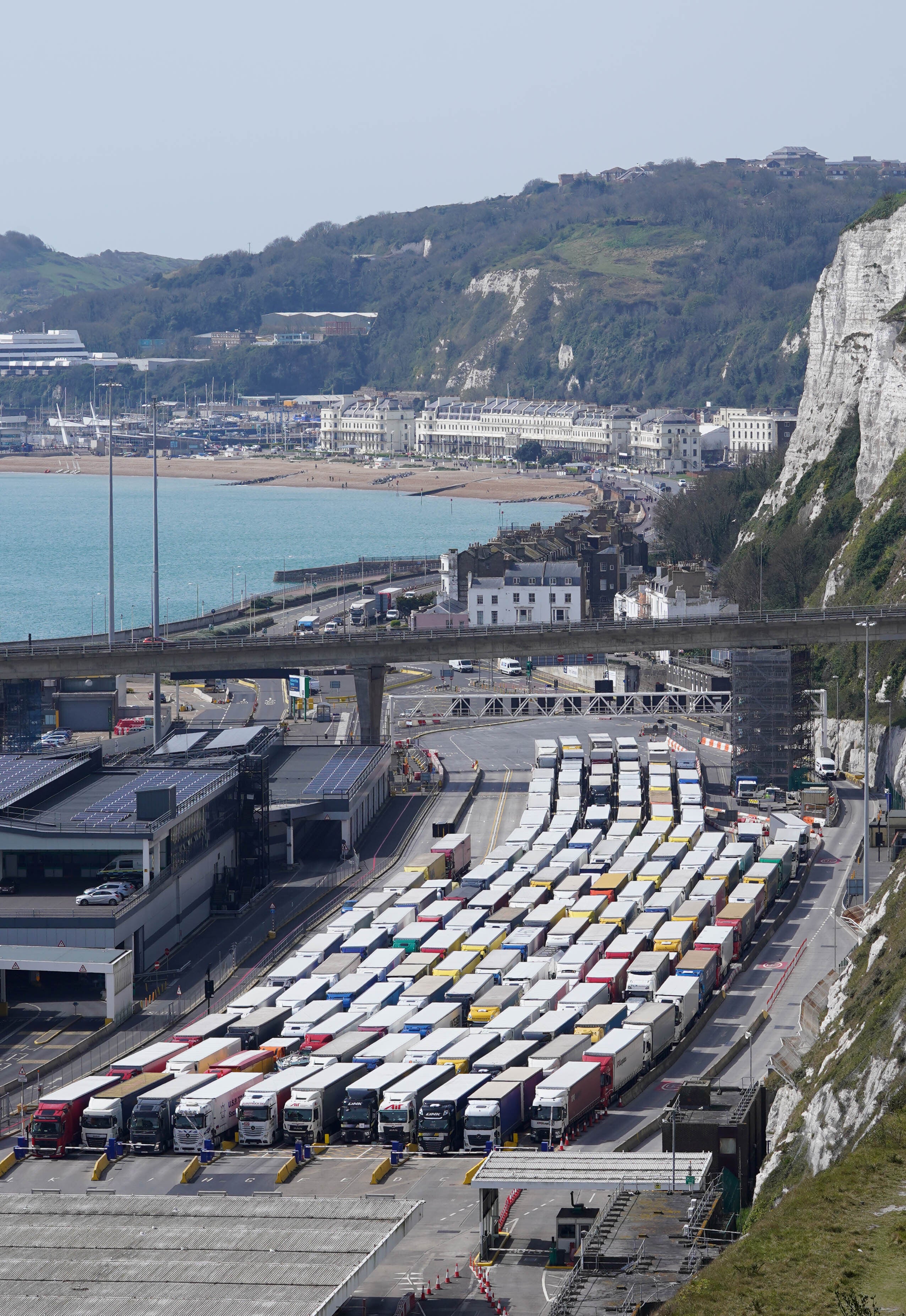Imports to EU in relative 25% fall after Brexit trade agreement, researchers say
But exports to the bloc avoided a sustained decline.

Your support helps us to tell the story
From reproductive rights to climate change to Big Tech, The Independent is on the ground when the story is developing. Whether it's investigating the financials of Elon Musk's pro-Trump PAC or producing our latest documentary, 'The A Word', which shines a light on the American women fighting for reproductive rights, we know how important it is to parse out the facts from the messaging.
At such a critical moment in US history, we need reporters on the ground. Your donation allows us to keep sending journalists to speak to both sides of the story.
The Independent is trusted by Americans across the entire political spectrum. And unlike many other quality news outlets, we choose not to lock Americans out of our reporting and analysis with paywalls. We believe quality journalism should be available to everyone, paid for by those who can afford it.
Your support makes all the difference.The first year of the UK’s post-Brexit trade agreement with the European Union saw a “major shock” with imports falling by 25% relative to those from elsewhere, research by academics has found.
But exports to the bloc avoided a sustained decline, with a smaller and only temporary drop relative to the rest of the world, the analysis found.
The Centre for Economic Performance (CEP) at the London School of Economics and Political Science, which produced the analysis, claims it is the most comprehensive study yet into the effects of Brexit on trade between the UK and EU.
The research centre says it found trade between the UK and EU held stable after the 2016 Brexit referendum until the end of 2020, and there was no evidence that uncertainty and anticipation effects led to a significant decline in relative trade in that period.
But a “substantial reorientation” occurred after the introduction of the UK-EU Trade and Cooperation Agreement (TCA) at the start of 2021, it said.
“Although it is surprising that imports were hit harder than exports during the first year of the TCA, it would be a mistake to conclude that exporters were unaffected.
“The number of export relationships with the EU fell sharply in 2021,” Rebecca Freeman, co-author of the report and associate of the CEP’s trade programme, said.
Analysis of changes in trade patterns for 1,200 products found a “sharp drop” in the number of trade relationships between UK exporters and EU importers, with “lower value relationships” hit particularly hard, according to the researchers.
CEP said the finding is consistent with claims that the trading agreement has caused many smaller UK firms to stop exporting to the EU.
“The drop in the number of products the UK exported to its smallest European partners following the introduction of the TCA is remarkable.
“It appears the UK simply stopped selling a lot of products to smaller countries in the EU,” co-author and PhD student at the University of Cambridge, Thomas Prayer, said.
“The UK’s departure from the EU’s single market and customs union at the start of 2021 caused a major shock to UK-EU trade.
“We estimate that the new TCA trade relationship led to a sudden and persistent 25% fall in relative UK imports from the EU,” the paper says.
It adds: “In contrast, we find a smaller and only temporary decline in relative UK exports to the EU, but nevertheless a large and sustained drop in the extensive margin of exports, driven by the exit of low-value relationships.”
Thomas Sampson, another co-author and associate professor of economics at LSE, said: “The Trade and Cooperation Agreement has increased trade costs, leading to a fall in imports from the EU and reducing the number of products exported to the EU by UK traders. These changes make the UK a harder place to do business.”
Co-author and professor of economics at UCL, Kalina Manova, said: “These findings suggest that UK firms did not rush to adjust their trade activity following the referendum, despite dramatically heightened uncertainty about the future UK-EU trade relationship.
“Once effective trade costs did rise, however, they started to quickly reorganise their global input sourcing away from the EU while seemingly more gradually adjusting their export sales.”
The research paper, entitled Unravelling Deep Integration: UK Trade In The Wake Of Brexit, analyses the first year of trade under the agreement and does not capture long-term effects.
A Government spokesman said: “Through our Export Support Service, expanded export academies and a landmark export strategy, we are ensuring that businesses of all sizes have the support they need to trade effectively with Europe and seize new opportunities as we strike trade deals around the world.
“Given the impact of Covid-19 on global supply chains, we have been introducing import controls in phases throughout 2022 in order to give businesses more time to prepare.
“Through our targeted multimedia campaign and a series of sector-based webinars, businesses are also signposted to the relevant import information and support to help them.”